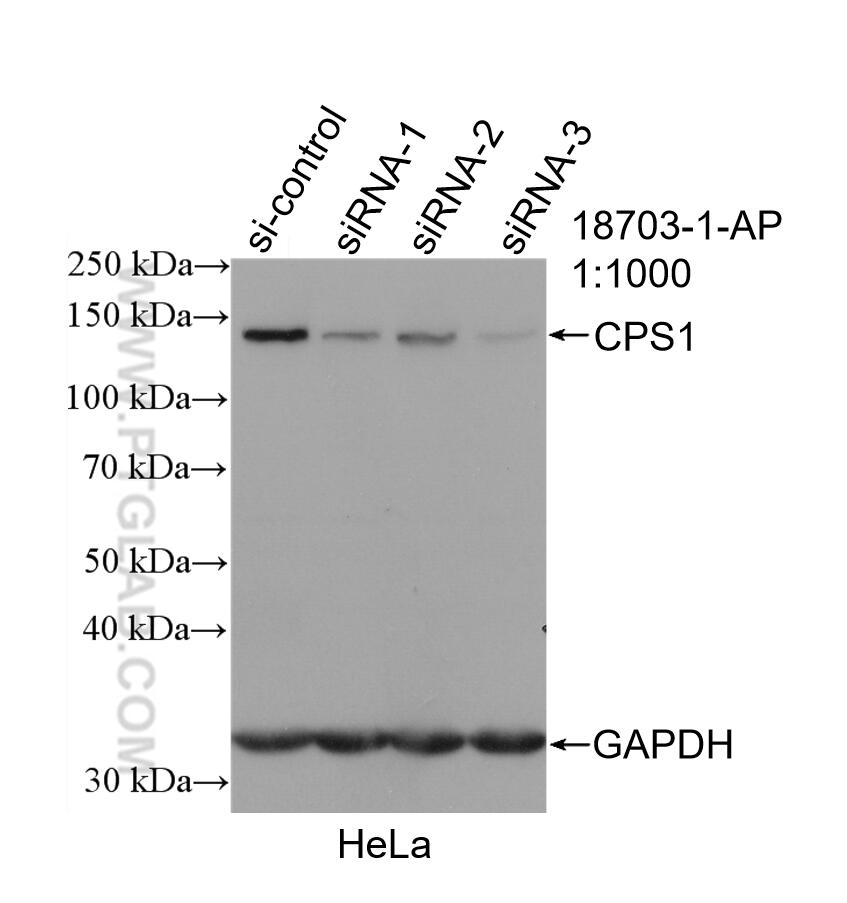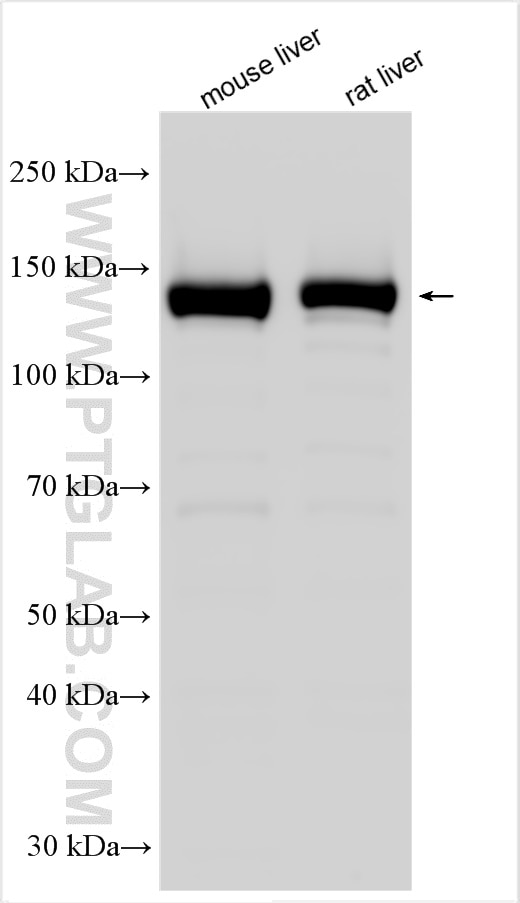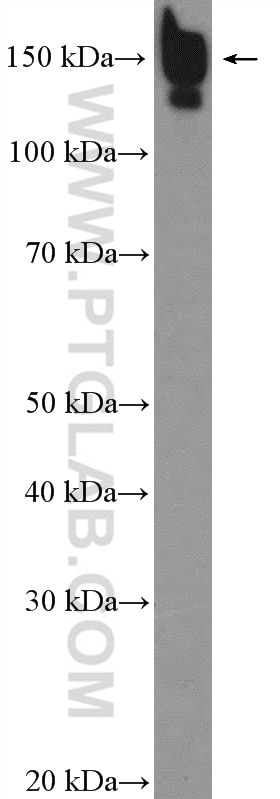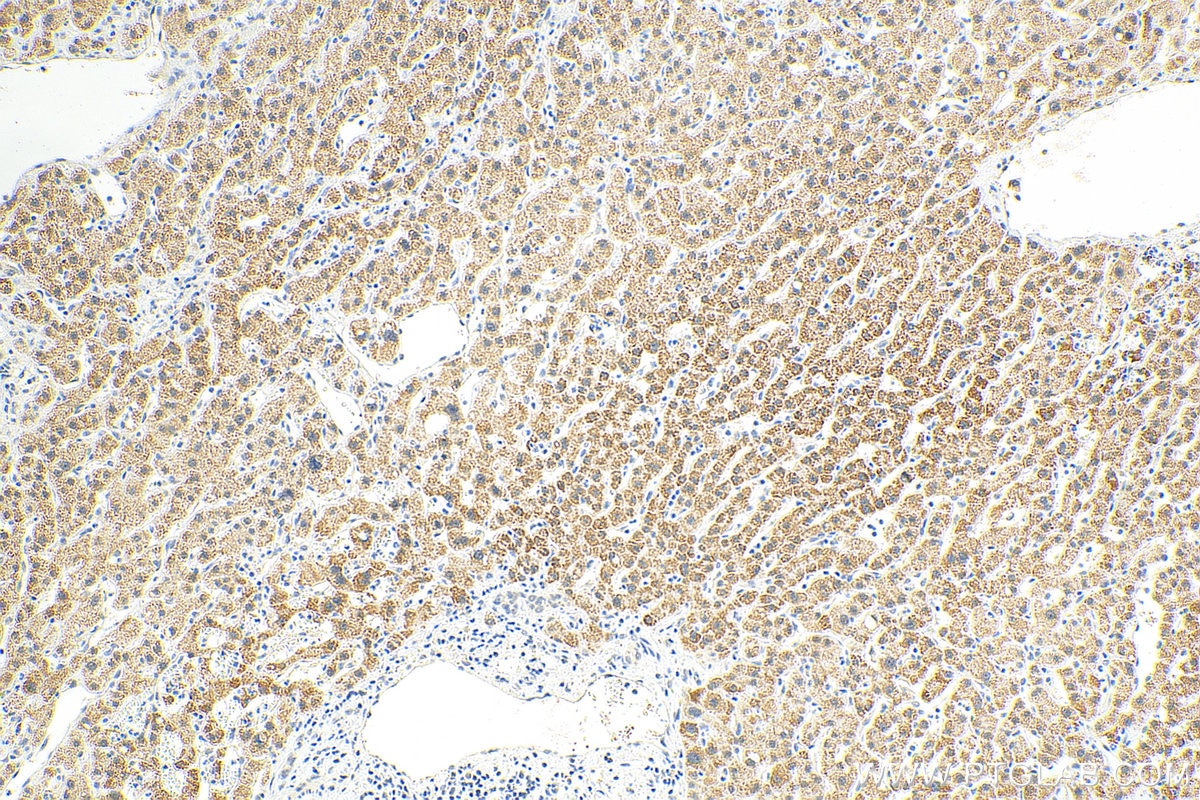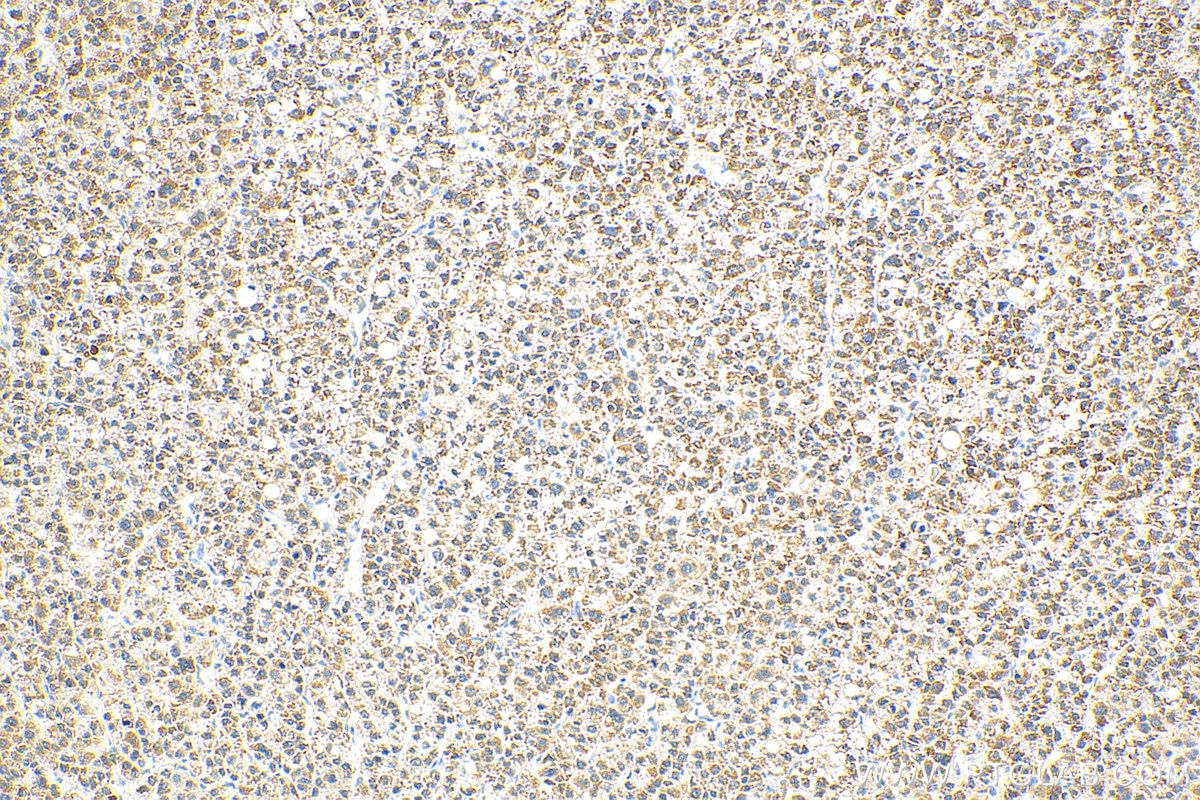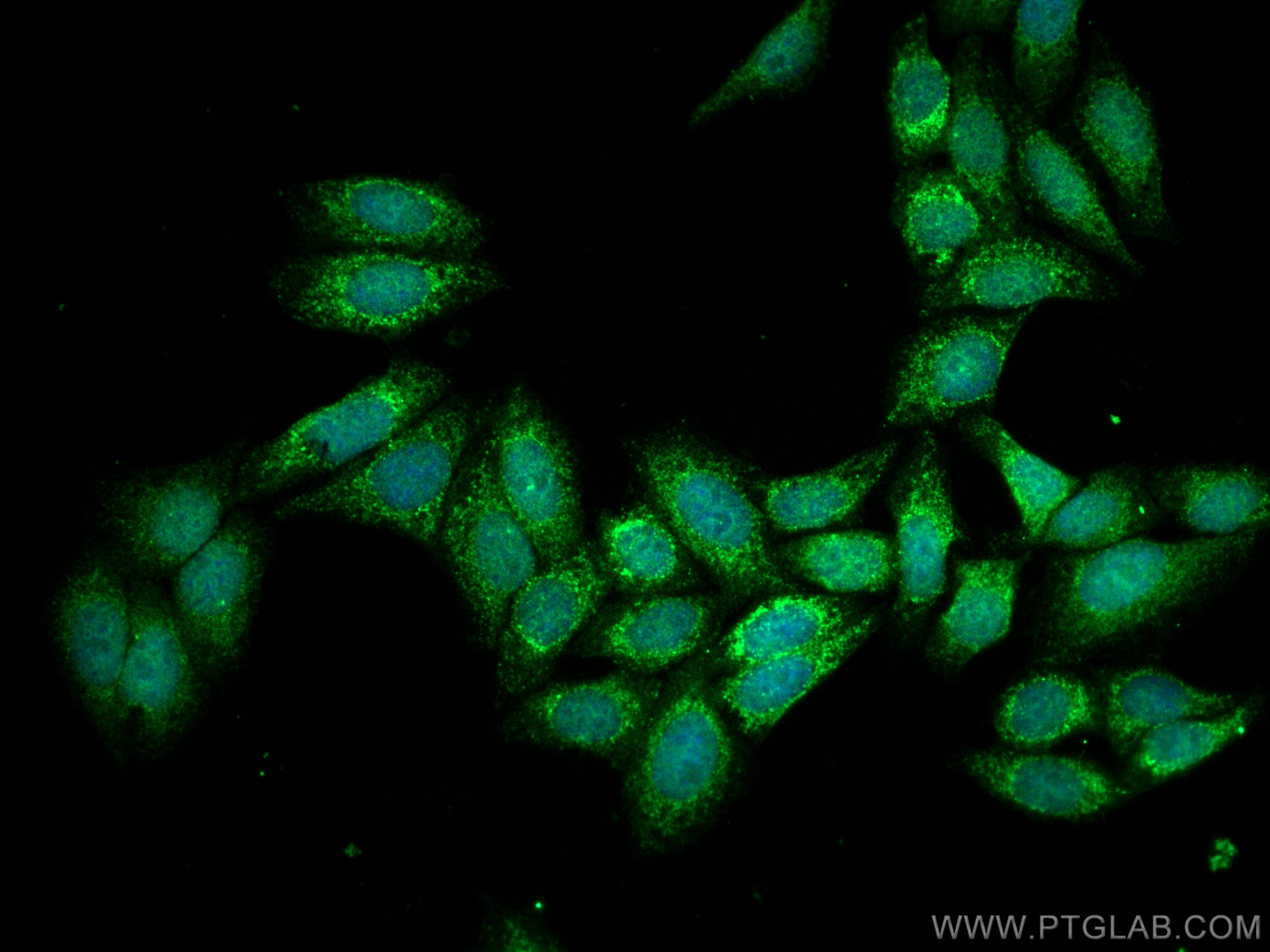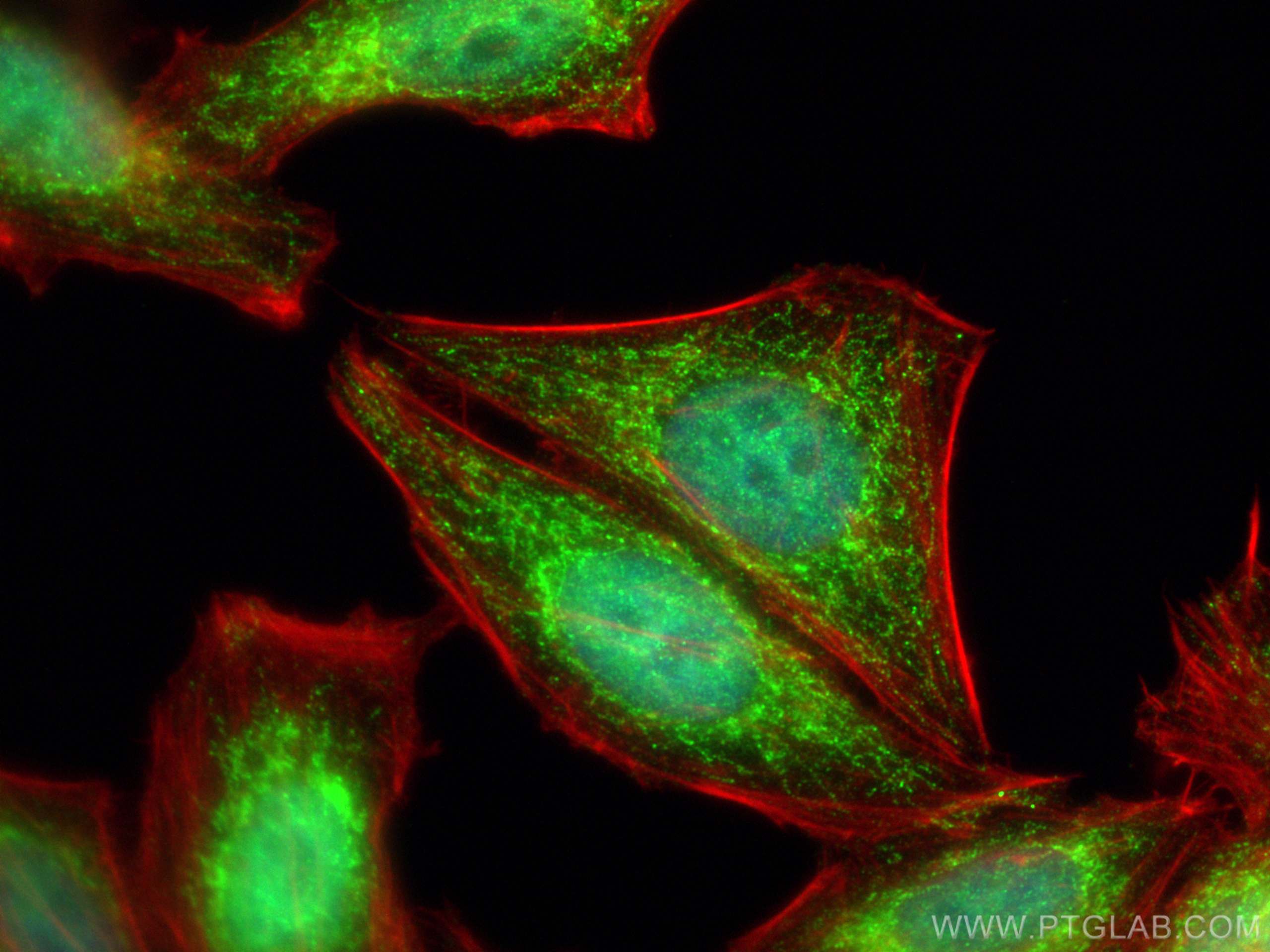Tested Applications
| Positive WB detected in | mouse liver tissue, HeLa cells, rat liver tissue |
| Positive IHC detected in | human liver cancer tissue Note: suggested antigen retrieval with TE buffer pH 9.0; (*) Alternatively, antigen retrieval may be performed with citrate buffer pH 6.0 |
| Positive IF/ICC detected in | HepG2 cells |
Recommended dilution
| Application | Dilution |
|---|---|
| Western Blot (WB) | WB : 1:2000-1:14000 |
| Immunohistochemistry (IHC) | IHC : 1:50-1:500 |
| Immunofluorescence (IF)/ICC | IF/ICC : 1:50-1:500 |
| It is recommended that this reagent should be titrated in each testing system to obtain optimal results. | |
| Sample-dependent, Check data in validation data gallery. | |
Published Applications
| KD/KO | See 2 publications below |
| WB | See 16 publications below |
| IHC | See 1 publications below |
| IF | See 2 publications below |
Product Information
18703-1-AP targets CPS1 in WB, IHC, IF/ICC, ELISA applications and shows reactivity with human, mouse, rat samples.
| Tested Reactivity | human, mouse, rat |
| Cited Reactivity | human, mouse |
| Host / Isotype | Rabbit / IgG |
| Class | Polyclonal |
| Type | Antibody |
| Immunogen |
Peptide Predict reactive species |
| Full Name | carbamoyl-phosphate synthetase 1, mitochondrial |
| Calculated Molecular Weight | 165 kDa |
| Observed Molecular Weight | 140-165 kDa |
| GenBank Accession Number | BC140943 |
| Gene Symbol | CPS1 |
| Gene ID (NCBI) | 1373 |
| RRID | AB_2084238 |
| Conjugate | Unconjugated |
| Form | Liquid |
| Purification Method | Antigen affinity purification |
| UNIPROT ID | P31327 |
| Storage Buffer | PBS with 0.02% sodium azide and 50% glycerol, pH 7.3. |
| Storage Conditions | Store at -20°C. Stable for one year after shipment. Aliquoting is unnecessary for -20oC storage. 20ul sizes contain 0.1% BSA. |
Background Information
CPS1 is an enzyme that catalyzes the first committed step of the hepatic urea cycle, which is important in the removal of excess urea from cells. Expressed primarily in the liver and small intestine, CPS1 can be used as a marker for mitochondria in these tissues. In addition, CPS1 expression appears to be lost in adenocarcinomas of the small intestine. The antibody can recognize two isoforms of this gene around 165 kDa and 116 kDa.
Protocols
| Product Specific Protocols | |
|---|---|
| IF protocol for CPS1 antibody 18703-1-AP | Download protocol |
| IHC protocol for CPS1 antibody 18703-1-AP | Download protocol |
| WB protocol for CPS1 antibody 18703-1-AP | Download protocol |
| Standard Protocols | |
|---|---|
| Click here to view our Standard Protocols |
Publications
| Species | Application | Title |
|---|---|---|
Cancer Cell Inhibition of De Novo NAD(+) Synthesis by Oncogenic URI Causes Liver Tumorigenesis through DNA Damage. | ||
Nat Commun Plasmodium sporozoite phospholipid scramblase interacts with mammalian carbamoyl-phosphate synthetase 1 to infect hepatocytes. | ||
Mol Metab SWI/SNF complex subunit BAF60a represses hepatic ureagenesis through a crosstalk between YB-1 and PGC-1α. | ||
iScience Mof plays distinct roles in hepatic lipid metabolism under healthy or non-alcoholic fatty liver conditions | ||
J Cell Mol Med Caspase recruitment domain family member 10 regulates carbamoyl phosphate synthase 1 and promotes cancer growth in bladder cancer cells.
| ||
Front Cell Dev Biol Urea as a By-Product of Ammonia Metabolism Can Be a Potential Serum Biomarker of Hepatocellular Carcinoma.
|
Reviews
The reviews below have been submitted by verified Proteintech customers who received an incentive for providing their feedback.
FH MALLIKARJUNA (Verified Customer) (11-13-2025) | good for Western blot
|

